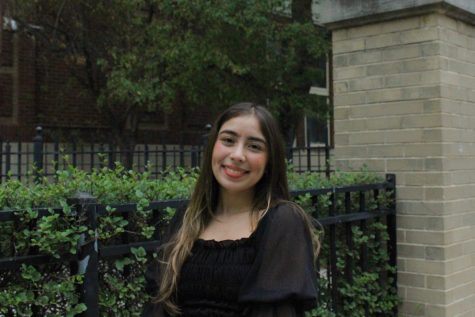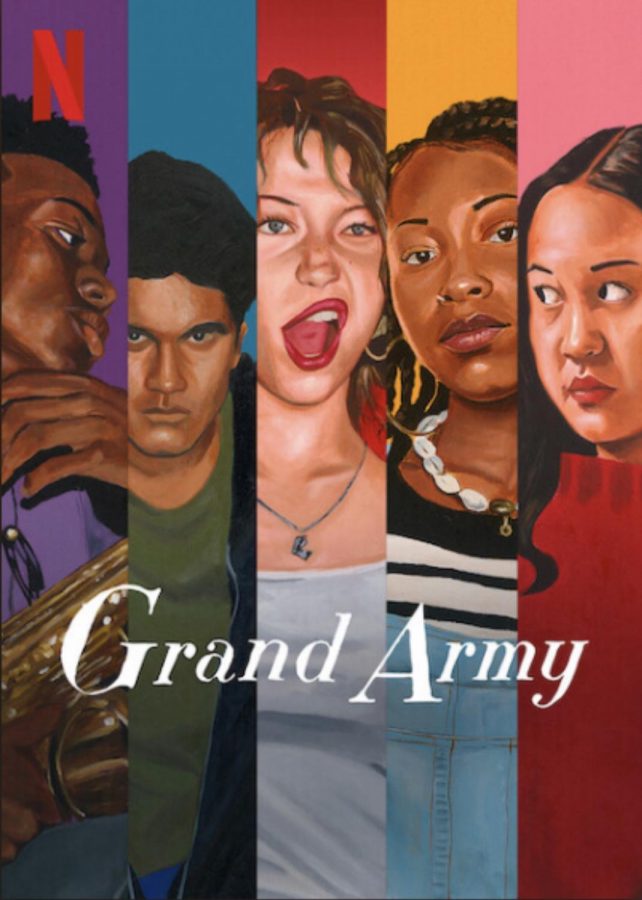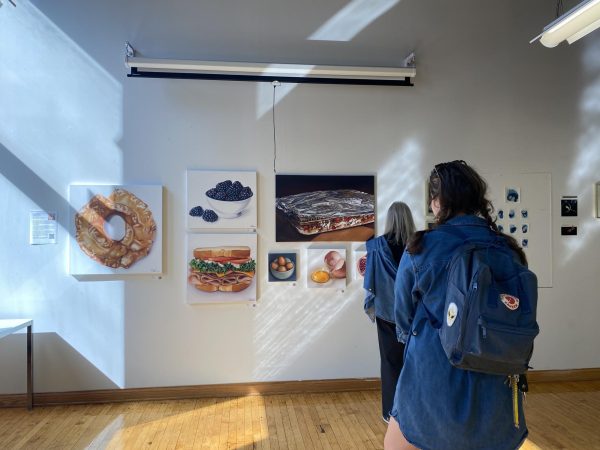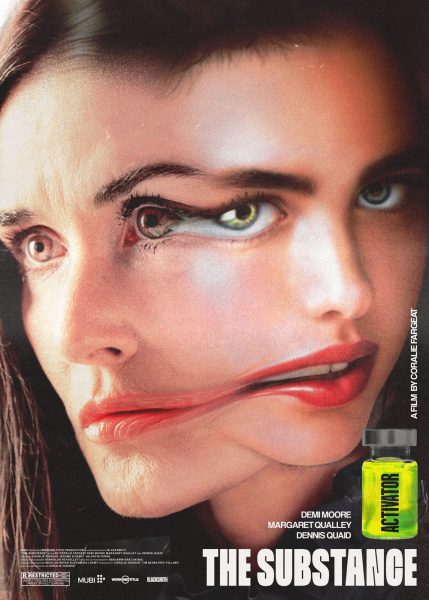‘Grand Army’: What counts as performative activism?
As I lay in bed two days ago, I scrolled through Netflix in search of anything to take my mind off of college applications. I stumbled upon “Grand Army,” and having previously heard about its takes on current social dilemmas, I clicked play.
The opening sequence rushes between characters; while they each lead unique lives, they’re all intertwined through the angst of high school. Reminiscent of shows like “Euphoria” and “Degrassi,” each character has their own story arc. Set in New York, the show keeps a fast pace. We quickly flip perspectives between students at Grand Army, an elite public school in Brooklyn.
The pilot starts off with a bomb going off outside the school, prompting the school to go on lockdown. We feel the anxiety the characters feel — going to public school in America makes that fear familiar. Flipping through each character, we see how each person responds to the threat.
Sid (Amir Bageria), a swimmer who struggles with accepting and understanding his sexuality, winces when thinking about being racially profiled due to the bomber being referred to as an Arab-American. Dom (Odley Jean) worries about gathering the money to pay for her niece and nephew to go to fencing classes, and loses the money after Owen (Jaden Jordan) and Jayson (Maliq Johnson) drop her wallet down the stairwell. Dom’s situation is made evident from the first episode: she and her family struggle financially throughout the season, and a lot of the financial burden is put on Dom.
We witness Dom’s inner conflict of prioritizing her time. While she tries to write up a plan to save money and help her family out, she also balances finding love and focusing on school and her dreams. She is a key character in the way that you feel her passion and intelligence like a beaming glow. Jean’s sense of resilience provides a strong connection between the viewer and her character, and seeing how she puts everything towards helping her future provides a relatable aspect to the character. She radiates perseverance and does anything she can to help herself and her family.
If I had to point out a main character of the series, it would be Joey del Marco, played by Odessa A’zion. At the start of the show, we see a critical take on Joey’s character and her means of activism. In the second episode, we see her posting on Instagram about the Free the Nipple Campaign, while concurrently ignoring campaigns against police brutality. While all the girls on the dance team promote her post, they simultaneously refuse to kneel at a basketball game in solidarity with victims of police brutality.
The show focuses a lot on Joey’s storyline, specifically her struggle of coping with trauma after being sexually assaulted by two of her close friends, George (Anthony Ippolito) and Luke (Brian Altemus). She gets slut-shamed at school, and gaslit by both George and Luke as well as Tim (Monk Serrell Freed), who was there in the cab when she was assaulted.
Consistently throughout the season, we hear about Grand Army’s “zero-tolerance policy.” However, we see the exceptions to this rule and how it seems to only apply to the people the administration wants it to apply to. While Owen, a Black student at Grand Army, gets a two and a half month suspension for dropping Dom’s wallet, George and Luke get the day off from school to get questioned about their sexual assault allegations and are able to return to school a week later.
“Grand Army” does an amazing job of not only talking about important issues, but showing how they affect current-day teenagers. Microaggressions, homophobia, xenophobia, sexual assault and the school-to-prison pipeline are only a portion of the issues touched on in the show.
However, in researching the show, I came across racism and bigotry allegations against its creator, Katie Cappiello, and critiques on how Netflix treats their BIPOC writers. A writer for the show, Ming Pieffer, spoke up about her experience on Twitter.
“Me and the 3 writers of color who worked on the show quit due to racist exploitation and abuse,” wrote Pieffer. She also stated that multiple BIPOC writers asked Cappiello to not make Dom’s storyline just about her struggles with poverty, but that she didn’t listen to their requests.
“Grand Army” is able to blend students from completely different backgrounds into one simultaneous timeline. Fluctuating between each character’s life and perspective inside and outside of school, the show provides a unique insight into the lives of teenagers. The show ends in March of 2020, with the looming threat of the future COVID-19 pandemic. Although we have no knowledge of what happens after the end of the season, it is safe to say that the students of Grand Army have much in store for them for season two.
Your donations directly fund the Lane Tech student journalism program—covering essential costs like website hosting and technology not supported by our school or district. Your generosity empowers our student reporters to investigate, write, and publish impactful stories that matter to our school community.
This website is more than a publishing platform—it's an archive, a research tool, and a source of truth. Every dollar helps us preserve and grow this resource so future students can learn from and build on the work being done today.
Thank you for supporting the next generation of journalists at Lane Tech College Prep!

Selena, a senior, is returning for her second and final year with The Champion (formerly The Warrior). She loves to play guitar and is extremely passionate...






